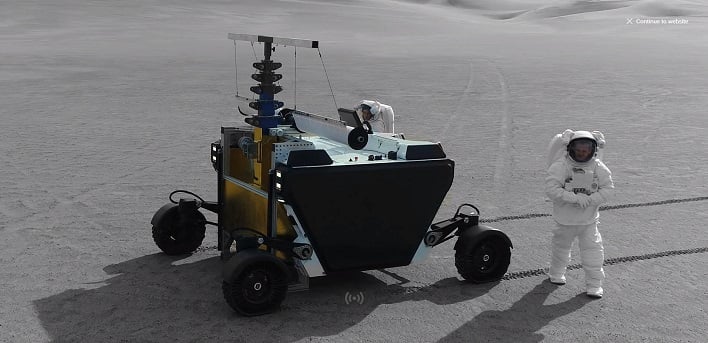Space Startup Inks Deal With SpaceX To Send Jeep Wrangler-Sized Rover To Moon
NASA will be announcing the four astronauts who will be partaking in the upcoming Artemis II mission. It will be the forerunner to Artemis III, which will be the first mission since 1972 to return humans back to the Moon's surface. Once astronauts make their return to the lunar surface, they will be in need of transportation. Enter Astrolab's FLEX rover.
Astrolab's rover will become the "largest and most capable" rover to ever be on the Moon, according to a blog post by the company. Flex will have a maximum combined rover and cargo mass of more than two tons and is nearly three times the mass of any of its predecessors. It is slightly larger than NASA's Perseverance rover on Mars and will be able to traverse the surface of the Moon and Mars at a top speed of 15mph.
"Our Astrolab team has created much more than a rover for use on the Moon and Mars," remarked Jaret Matthews, Founder and CEO of Astrolab. "We've created a logistics system that can accommodate a wide variety of cargo. We expect this approach will help establish a permanent lunar outpost on the Moon at a lower cost and in less time than previously envisioned."

Tom Ochinero, Senior Vice President, Commercial Business, at SpaceX, stated, "Starship is designed to transport large amounts of cargo, including rovers, to the Moon and Mars for research and exploration." He continued, "Developing sustainable outposts will require lunar logistics and transportation on the surface of the Moon, like what Astrolab offers."


